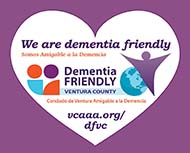
Hospice and palliative care are end-of-life treatment options that family members often don’t understand and have difficulty discussing. Medical social workers help fill the need for families by looking at both the medical and emotional sides of the process to provide information and guidance.
Hospice vs. Palliative Care
Hospice is a comfort care philosophy for patients that begins after treatment of an illness ends and provides non-curative compassionate comfort care for terminally ill patients. Hospice care helps patients feel comfortable by treating pain and symptoms while preparing both patients and their families for the end of life. Similarly, palliative care also provides compassionate comfort care but focuses on assessing and managing symptoms caused by life-limiting illness and often occurs in conjunction with curative treatment. Medical social workers support the physical, social, mental, and spiritual wellbeing of patients and their families during the difficult stages at the end of life.
Objective Compassion
Medical social workers provide a comprehensive assessment of the patient’s support needs and work in collaboration with the patient, their family, and the healthcare team to create an individualized discharge plan.
The social worker can explain comfort care, what it covers, and give the family the various options available to them and their loved one. The family may need someone to act as their voice when speaking with the doctor about pain management or homecare versus inpatient care.
These conversations are challenging and can become emotional. The social worker can communicate the family’s wishes without interjecting the level of emotion that family members often cannot control. They can be objective and not let their emotions take over the conversations.
Educating Family
Doctors are often too busy to go over every detail with family members, especially when dealing with the end of life care needs. Social workers can step in to help families understand treatment plans and provide education on end-of-life issues. Medical social workers help families every step of the way, including:
- Understanding home care options
- Finding relief help during long-term palliative care
- Knowing when to change care plans
- Understanding the stages of dying
- Finding help financially
The medical social worker’s role can change from one hour to the next, based on the family’s needs. This professional must be able to discern what is needed at any given moment and to be able to switch hats midstream.
Patient First
The social medical worker’s most important role is putting the patient first. While the family may be the only active voice, the patient must be the primary focus due to the patient’s medical condition.
Medical social workers are trained to look for signs of abuse and neglect and to determine if the patient’s needs are being placed first rather than the family’s needs. While most of the time, the two are the same, there are instances where the social worker will have to intercede on behalf of the patient.
The role of the medical social worker during the end of life cannot be understated. Our team of knowledgeable and compassionate medical social workers and home health care professionals are here to provide guidance and support for patients and families during challenging times. To learn how Assisted can help you or a loved one after a hospital stay, call us at 800-949-6555 or visit us online at www.AssistedCares.com.







